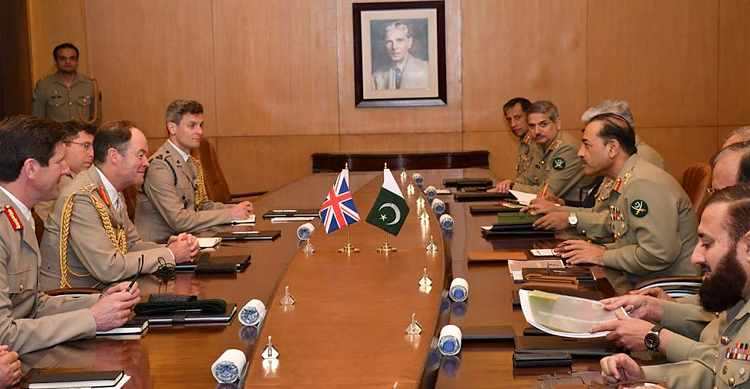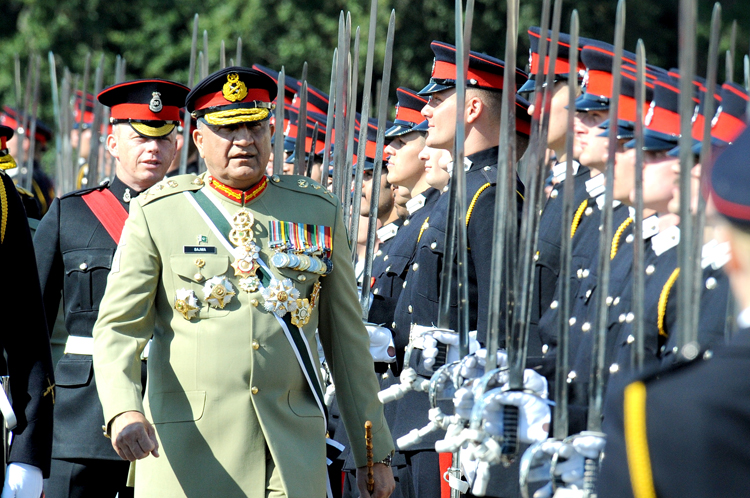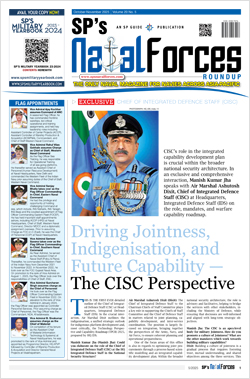INDIAN ARMED FORCES CHIEFS ON OUR RELENTLESS AND FOCUSED PUBLISHING EFFORTS

The insightful articles, inspiring narrations and analytical perspectives presented by the Editorial Team, establish an alluring connect with the reader. My compliments and best wishes to SP Guide Publications.

"Over the past 60 years, the growth of SP Guide Publications has mirrored the rising stature of Indian Navy. Its well-researched and informative magazines on Defence and Aerospace sector have served to shape an educated opinion of our military personnel, policy makers and the public alike. I wish SP's Publication team continued success, fair winds and following seas in all future endeavour!"

Since, its inception in 1964, SP Guide Publications has consistently demonstrated commitment to high-quality journalism in the aerospace and defence sectors, earning a well-deserved reputation as Asia's largest media house in this domain. I wish SP Guide Publications continued success in its pursuit of excellence.
- Global Partners Urged to Tap India's Shipbuilding Potential: Rajnath Singh at Samudra Utkarsh
- All about HAMMER Smart Precision Guided Weapon in India — “BEL-Safran Collaboration”
- India, Germany deepen defence ties as High Defence Committee charts ambitious plan
- G20 Summit: A Sign of Global Fracture
- True strategic autonomy will come only when our code is as indigenous as our hardware: Rajnath Singh
- India–Israel Joint Working Group Meeting on defence cooperation to boost technology sharing and co-development
UK-Pakistan Defence Cooperation
A strengthening bond for Security and Intelligence
 |
The Author is Former Director General of Information Systems and A Special Forces Veteran, Indian Army |

In her article titled ‘What is the UK-Pakistan relationship?’ published in The News on August 11, 2021, Ayesha Siddiqa wrote that in Islamabad people will point in the direction of the British High Commission as the most important Western diplomatic mission, even more significant than the American. Siddiqa is the author of ‘Military Inc’ which exposed the stranglehold of the Pakistani military on Pakistan and the military’s vast economic empire worth billions of dollars.
Siddiqa writes in her August 2021 article that the British Chief of Defence Staff General Nicolas Carter is a “frequent visitor” to Rawalpindi and the British High Commission is the “largest diplomatic mission” that the UK has anywhere in the world. According to her: London is practically a second home and a natural refuge for the Pakistan’s political class and elite in general; the approximately 1.2 million British of Pakistani origin that are now part of politics in northern England, and even other places, make it imperative for UK’s politicians to be conscious of Pakistan; the war on terror in Afghanistan and the terror attack in London in 2005 also played a role in bringing the two militaries and intelligence agencies together, and for the UK, Pakistan is critical to keep itself “secure”.
The British High Commission in Islamabad plays a crucial role in UK-Pakistan relations, surpassing even the American mission in significance
The above is no surprise. After all it was Britain’s deliberate mischief in 1947 that gave birth to Pakistan, British officers led the Pakistani forces comprising a mix of regulars and razakars in the invasion of Ladakh, the British C-in-C of Pakistan engineered the fall of Skardu, and it was the British who egged India to approach the United Nations instead of throwing out the invaders from Pakistan occupied Kashmir (POK). Today, Britain is procuring artillery ammunition from Pakistan and supplying the same to Ukraine.
In August 2022, the then Pakistani Army Chief General Qamar Javed Bajwa was the Chief Guest at the passing out parade of the UK’s Royal Military Academy at Sandhurst. Addressing the graduating officers, Bajwa said, “Two Pakistani cadets will also be graduating with you today and let me say that I am as proud of you as I am of them.” he told the graduating officers.

Britain hosts dozens of Pakistan Army officers on training courses each year, including at the Joint Services Command and Staff College. Since 2015, the Pakistan Army has regularly posted personnel as officer-instructors not only at the Royal Military Academy in Sandhurst (RMAS) but also at the Joint Services Command and Staff College at the Shrivenham Defence Academy; Pakistan is the only South Asian country to do so.
The close ties between the UK and Pakistan stem from historical, political, and security factors, including shared military engagements and a large British-Pakistani population
According to Mary Hunter, an expert on Pakistan, these Pakistani officer-instructors “will shape the competencies and attitudes of future British Army officers.” Most significantly, Pakistan Army officers are also known to receive training from MI5 and MI6 (Britain’s domestic and foreign intelligence services) through courses at the Chicksands Royal Air Force Base, which is an intelligence facility in Bedfordshire.
Despite the US forces rout from Afghanistan largely because of Pakistani support to the Taliban, the US allowed General Qamar Javed Bajwa to visit Washington in 2022; which was perhaps also facilitated by the UK. This was the first visit by a Pakistani Army Chief to the US in three years. The US and Pakistan also signed a deal worth $450 million to repair Pakistan’s ageing fleet of F-16 fighter jets.
It may also be recalled that the US had supplied the F-16s to Pakistan under the euphemism of “counter terrorism” (sic). The US-led Westhas always supported Pakistan and Pakistan’s proxy war on India in order to keep New Delhi in-check – a case of Saat Khoon Muaf. That is why there is free for all anti-India demonstrations and sloganeering in Britain and Khalistanis attacking Indian diplomatic missions in that country. Little wonder then that the US is already engaging Pakistan in a dialogue of counter-terrorism.

Now there is news that following a recent five-day visit by the British Army Chief Patrick Sanders to Pakistan, the UK is considering measures to enhance its intelligence and military cooperation with Pakistan. The long-standing intelligence cooperation between the UK and Pakistan’s ISI intensified after 9/11 with revelations that large numbers of Pakistani-British jihadists were training in Pakistan.
Sanders met with his Pakistan counterpart General Asim Munir as well as General Sahir Shamshad Mirza, Chairman Joint Chiefs of Staff. In February 2023, Asim Munir had made a five-day visit to the UK to attend an annual conference. Sanders was reportedly told during his visit to Pakistan that assistance from the UK was needed to stabilise Pakistan and fight threats to the West from jihadist groups like the Islamic State.
Military collaboration between the two countries involves training exchanges, intelligence sharing, and joint efforts to combat terrorism, with recent discussions focused on stabilising Pakistan and countering jihadist threats
It is a fact that the Islamic State of Khorasan Province (ISKP) was raised in Peshawar in Pakistan, which according to the US intelligence was a mix of disgruntled elements of Taliban as well as the Tehrik-i-Taliban Pakistan (TTP). It is also known that the US is maintaining links with terrorist outfits in Afghanistan through the Qatari embassy in Kabul.
The UK is also pushing India to engage with Pakistan on Kashmir, saying it will help marginalize jihadis. Pakistan is in chaos presently but its attitude towards India remains unchanged, as was apparent from the uttering of Pakistan’s Foreign Minister Bilawal Bhutto who was in India recently. At the same time, it cannot be discounted that the UK is not cooking some mischief in concert with Pakistan against India on behalf of the US.





